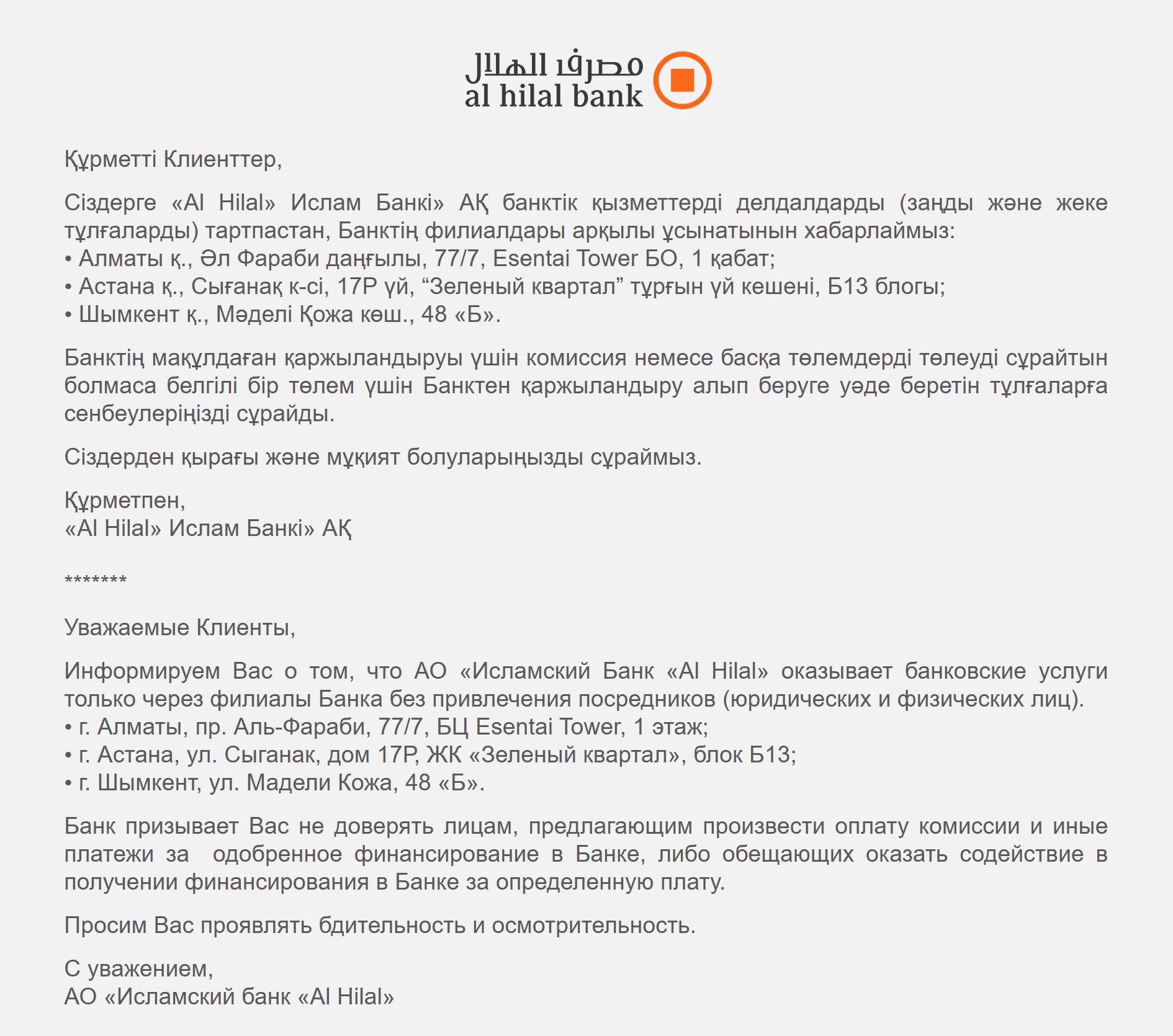Islamic banking is a banking system that is based on the principles and rules of Islamic Sharia. The basic principles behind the Islamic banking are the sharing of profit and loss, prohibition of the receipt and payment of interest, money is the medium of exchange and measurement. In carrying out their activities, Islamic financial institutions are obliged to observe the principles and rules of Islamic Sharia plus moral values.
The Islamic bank differs from a conventional bank mainly in two aspects: ethical considerations in the creation of banking products and the provision of services to customers. The concept of Islamic banking means the priority of Islamic ethical norms and values. Unlike conventional banks, there is an independent controlling authority in the Islamic banks — the Sharia Board, which is an independent structure within the Bank. The functions and responsibilities of the Sharia Board are determined by the Charter of the Bank and the Laws of Kazakhstan regulating the activities of Islamic banks.
The main responsibility of the Sharia Board is to supervise the compliance of banking activities with Islamic principles and rules of the Sharia. All used instruments and transactions in Islamic banks should be approved by the Sharia Board. The Sharia Board is the final authority determining the conformity of products and services in compliance with the principles and rules of the Sharia.
Key principles of Islamic finance:
- Bank products based on partnership (profit and loss sharing);
- Money is not an object of sale but a medium of exchange and measurement;
- Prohibition of uncertainty regarding the subject of the agreement and its terms (Garar);
- Prohibition of transactions where the income arises from a coincidence (Maisir): gambling, betting, and also operations with derivative financial instruments (derivatives);
- Prohibition of financing certain sectors of the economy in accordance with the principles of Islam: the production of tobacco, alcohol, weapons, drugs, as well as activities related to the dissemination of pornography, the development of gambling (Haram);
- Prohibition of misappropriation of another's property;
- Prohibition on the sale of debt.
Today, Islamic banks perform almost all traditional banking operations: current accounts and savings accounts, deposits, financing products, cash services, payments, funds transfers, treasury, etc, invest in different industries of the economy: manufacturing, agriculture, trade to the extent permissible according to the Sharia.




